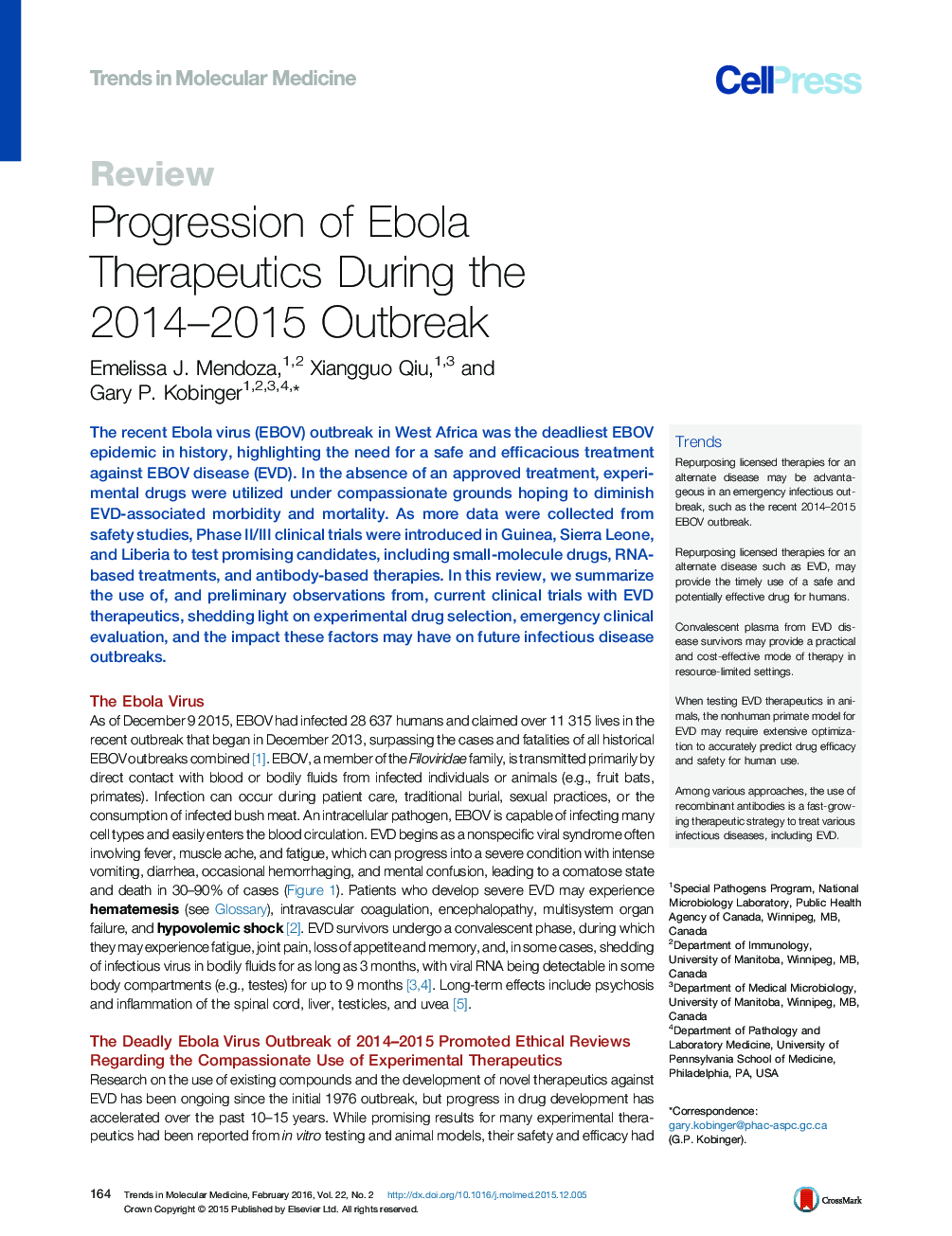| Article ID | Journal | Published Year | Pages | File Type |
|---|---|---|---|---|
| 2838375 | Trends in Molecular Medicine | 2016 | 10 Pages |
The recent Ebola virus (EBOV) outbreak in West Africa was the deadliest EBOV epidemic in history, highlighting the need for a safe and efficacious treatment against EBOV disease (EVD). In the absence of an approved treatment, experimental drugs were utilized under compassionate grounds hoping to diminish EVD-associated morbidity and mortality. As more data were collected from safety studies, Phase II/III clinical trials were introduced in Guinea, Sierra Leone, and Liberia to test promising candidates, including small-molecule drugs, RNA-based treatments, and antibody-based therapies. In this review, we summarize the use of, and preliminary observations from, current clinical trials with EVD therapeutics, shedding light on experimental drug selection, emergency clinical evaluation, and the impact these factors may have on future infectious disease outbreaks.
TrendsRepurposing licensed therapies for an alternate disease may be advantageous in an emergency infectious outbreak, such as the recent 2014–2015 EBOV outbreak.Repurposing licensed therapies for an alternate disease such as EVD, may provide the timely use of a safe and potentially effective drug for humans.Convalescent plasma from EVD disease survivors may provide a practical and cost-effective mode of therapy in resource-limited settings.When testing EVD therapeutics in animals, the nonhuman primate model for EVD may require extensive optimization to accurately predict drug efficacy and safety for human use.Among various approaches, the use of recombinant antibodies is a fast-growing therapeutic strategy to treat various infectious diseases, including EVD.
